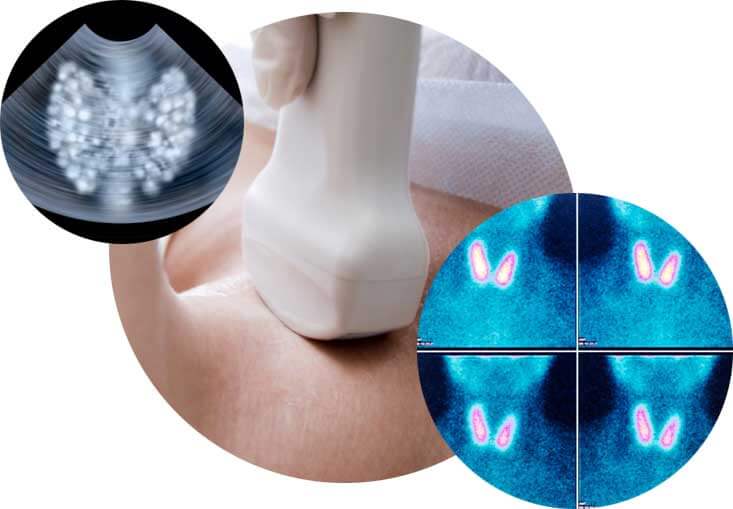Multinodular Goiter
What Are The Symptoms Of A Multinodular Goiter?
Most people with a multinodular goiter do not have symptoms. The swelling might be found during an imaging test, such as an X-ray, that is done for another reason. Or a blood test to check thyroid hormone levels might show that a person has too much thyroid hormone. Having too much thyroid hormone can be a sign of a multinodular goiter.
Some people with a multinodular goiter feel or see a lump in their neck. Or they have symptoms from having too much thyroid hormone, such as:
- Feeling worried or upset, or having trouble sleeping
- Feeling weak or tired
- Losing weight without trying
- Having a fast heartbeat
- Having frequent bowel movement
If a multinodular goiter presses on the throat or airway, it can cause:
- Trouble breathing — Especially during physical activity, at night, or when reaching or bending
- Wheezing
- Coughing
- A choking feeling
- Trouble swallowing
Will I Need Tests?
Yes. Your doctor will want to make sure that the multinodular goiter is not going to harm your body. You need tests to find out if nodules in the goiter are causing your thyroid gland to make too much hormone. Your doctor will also check the nodules to see how big they are and if they need to be taken out.
Tests usually include blood tests and an imaging test of the thyroid called an “ultrasound.” This test uses sound waves to create a picture of the inside of your body.
Sometimes, people need more tests. These include:
- Fine needle aspiration – For this test, a doctor uses a thin needle to remove a small sample of tissue from 1 nodule in the goiter, usually the largest. He or she might take tissue from more than 1 nodule. Then, another doctor looks at the tissue under a microscope.
- Thyroid scan – People get this test only if they have too much thyroid hormone in the body. For this test, a person gets a pill or a shot with a small amount of a radioactive substance. Then a special camera takes a picture of the thyroid gland. This test is not safe for women who are pregnant or breastfeeding.
How Is A Multinodular Goiter Treated?
Many multinodular goiters do not need treatment. If the nodules are small and do not look harmful, your doctor might watch and wait to see if the swelling gets bigger or needs to be treated.
A multinodular goiter needs treatment if:
- It causes the thyroid gland to make too much hormone
- It causes problems with breathing, swallowing, or other body functions – or is very large
- It contains cancer
Treatments for multinodular goiter include:
- Antithyroid medicines – If your thyroid blood tests show that the thyroid gland is making too much thyroid hormone, doctors can use medicines to lower the amount of thyroid hormone it makes. These medicines control thyroid hormone levels until doctors can do other treatments.
- Medicines to help with symptoms caused by too much thyroid hormone, such as atenolol (brand name: Tenormin®)
- Surgery to remove the multinodular goiter
- Radioactive iodine – Radioactive iodine comes in a pill or liquid that you swallow. It has a small amount of radiation in it. The radiation treats the problem by destroying a lot of the thyroid gland, so it does not make so much hormone. Radioactive iodine is used only to treat nodules that make too much thyroid hormone. It is not safe for women who are pregnant or breastfeeding.
- Injections (shots) of alcohol to shrink nodules, or laser treatment to destroy them. The alcohol used in this treatment is not the kind people drink.
What if I want to get pregnant?
f you want to get pregnant, talk with your doctor or nurse. He or she can make sure your multinodular goiter is not making too much thyroid hormone before you get pregnant.
Women who are pregnant should not be treated with radioactive iodine. This is because radioactive iodine can cause serious harm to a baby.

